So you receive:
Another email. Another request. Another invitation that tugs at your time and your already-overflowing plate.
And before your heart has time to answer, your lips betray you. “Yes,” you say, again.
And just like that, your time, energy, and peace are no longer yours.
Sound familiar?
We live in a culture that praises hustle, celebrates sacrifice, and tells us that saying “yes” makes us kind, generous, valuable.
What rarely gets said though is that: Every time you say “yes” when you mean “no,” you’re quietly abandoning yourself.
Your rest. Your priorities. Your sanity. Your life.
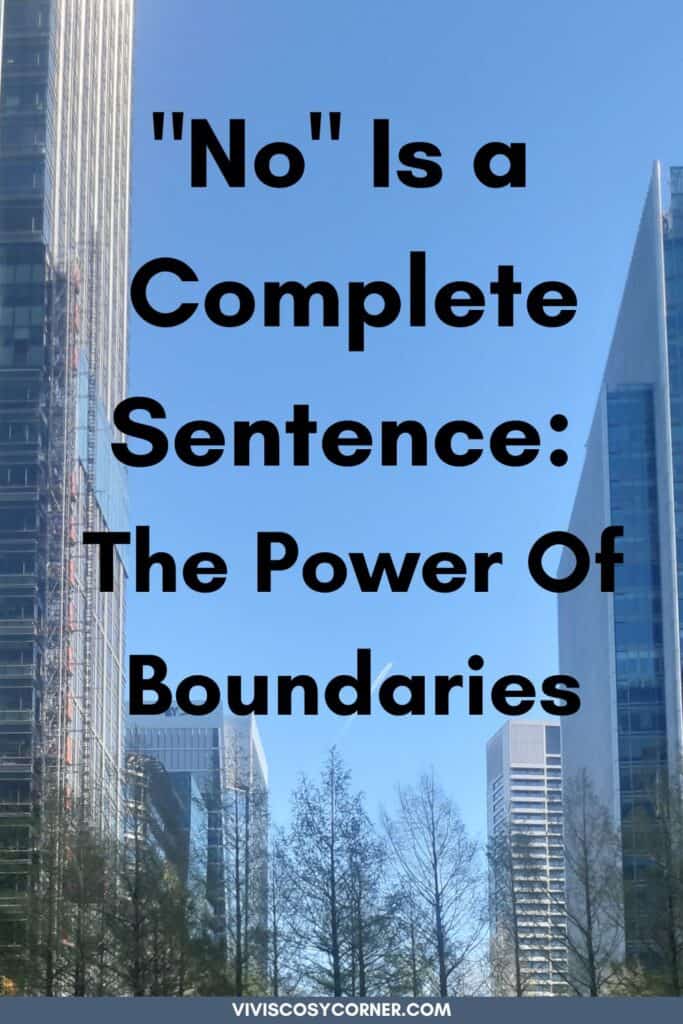
The Art of the Unapologetic “No”
Maya Angelou once said, “You can only become truly accomplished at something you love. Don’t make money your goal. Instead, pursue the things you love doing, and then do them so well that people can’t take their eyes off you.”
But how can you pursue what you love if your life is cluttered with obligations you never wanted?
“No” is the scalpel that cuts away the excess, leaving only what matters.
We’ve been conditioned to believe that “no” is impolite, even selfish. So we soften it. Wrap it in apologies. Pad it with long explanations.
However,
“No” is not a rejection. It’s a boundary. A self-respecting, soul-saving boundary. A sacred line drawn in love, for yourself and others.
“No” is not rude. It’s not selfish. It’s not unkind.
“No” is not a wall. It is a filter that lets in only what nourishes you. It is the gate you build around your inner garden, protecting the space where your joy, energy, and creativity bloom.
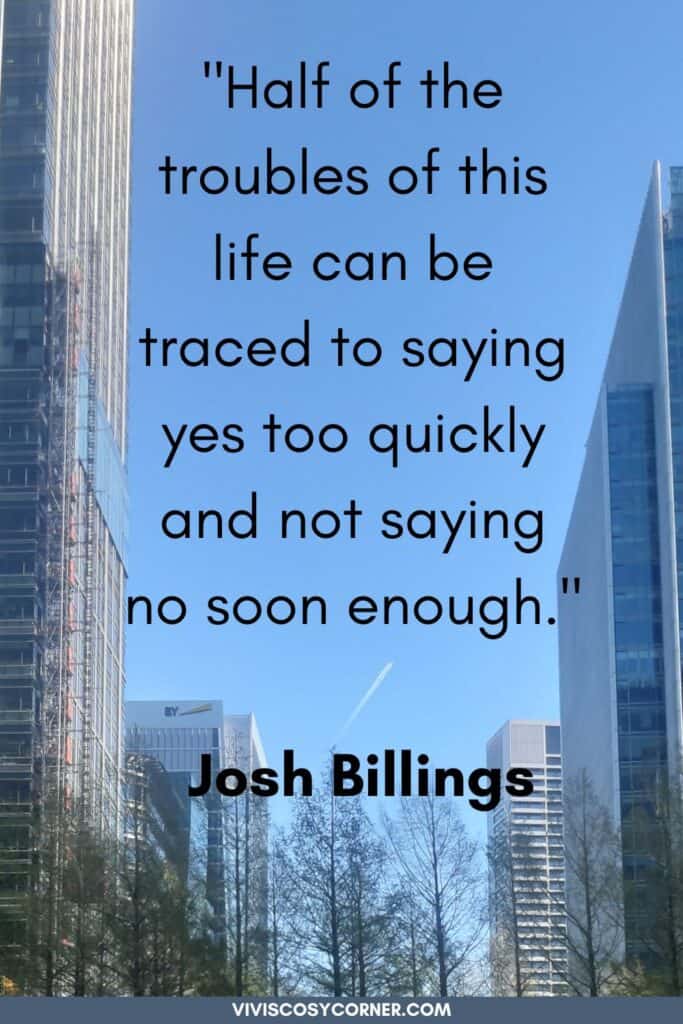
Why We Struggle With Saying No
Conditioning has rewarded us for being agreeable, accommodating, easy to be around. But over time, that conditioning has turned into a silent agreement that: our worth is tied to our willingness.
We fear rejection. Disappointment. Being misunderstood.
So we overexplain. We people-please. We twist ourselves into polite pretzels just to soften the blow of what we’re afraid to say.
We’ve learned some harmful myths along the way:
- “I’ll Let Them Down” – But you matter, too. You’re not responsible for others’ expectations. As Brené Brown says, “Choose discomfort over resentment.” Why? Discomfort is momentary. Resentment is lasting. A polite “no” now beats a bitter “yes” later.
- “I’ll Miss Out” – Not everything is meant for you. Every “no” clears room for the right yes. You are not missing out, you’re choosing in.
- “I Should Be Able to Handle It” – Even diamonds crack under pressure. Boundaries aren’t a sign of weakness, they’re a mark of self-respect. Rest isn’t weakness. It’s wisdom.
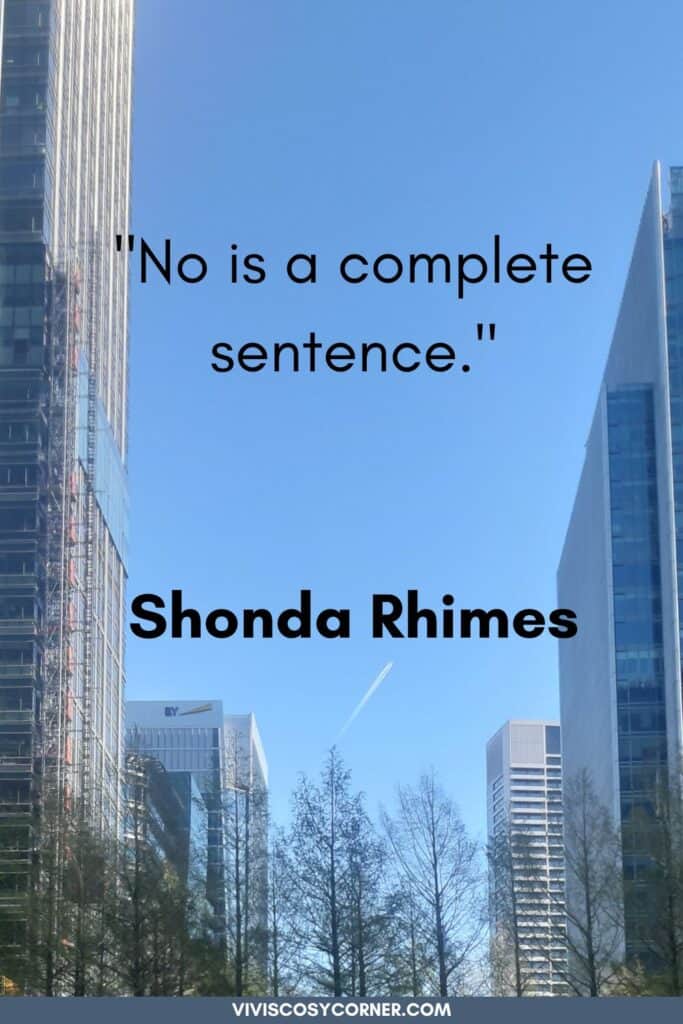
A Gentle “No” Is an Act of Self-Trust
It says:
I know what I need. I value my time. I honour my energy.
I honour my limits. I don’t have to explain myself to be respected. My worth isn’t defined by my availability.
Think of your time like a beautiful, blooming garden. You don’t let everyone trample through it just because they ask. You water what matters. You prune distractions. You protect the space for what you’re growing.
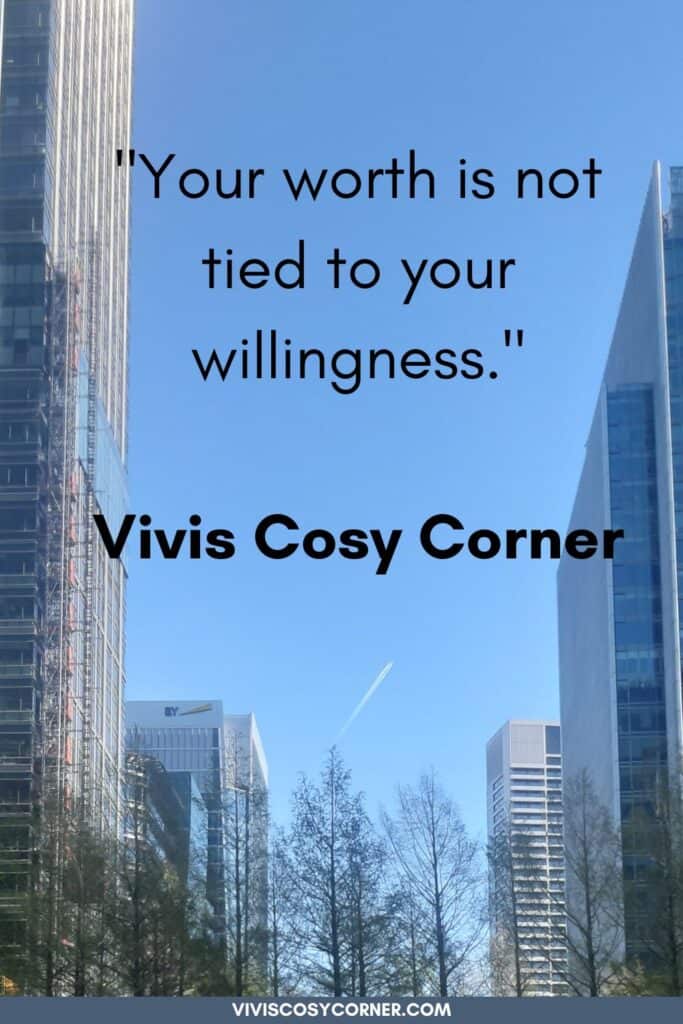
Every No Is a Hidden Yes
When you:
- Say no to overcommitting → You say yes to rest.
- Say no to toxic relationships → You say yes to peace.
- Say no to what drains you → You say yes to what lights you up.
- Say no to distractions → You say yes to your priorities.
“No” is the gatekeeper of your most intentional life.
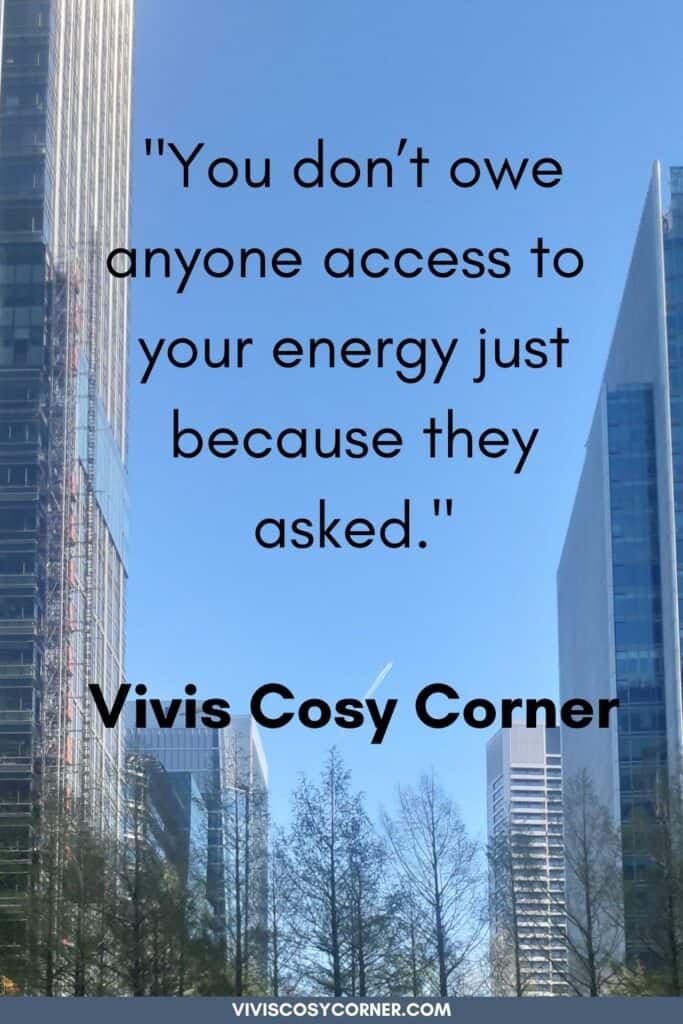
How to Say No (Without the 5-Paragraph Apology)
You don’t need to shrink or justify. A clear, kind “no” is enough. Try a few gentle scripts to guide you:
- “No, but thank you for thinking of me.”
- “Thanks so much for thinking of me, but I’ll pass this time.”
- “I’m not able to take that on right now.”
- “Let me check my schedule and get back to you.” (Then, say no.)
- “I can’t this time, but I hope it goes well!”
- “That doesn’t align with my priorities at the moment.”
- “That’s not something I can take on at the moment.”
- “Thanks for thinking of me, but I can’t commit right now.”
- “I’m not available for that, but I hope it goes well.”
You don’t need to defend your time. You just need to honour it.
Try this: The next time you’re tempted to say yes when you mean no, pause. Place a hand on your chest. Feel the weight of that “yes” before you speak it. Is it yours to carry?
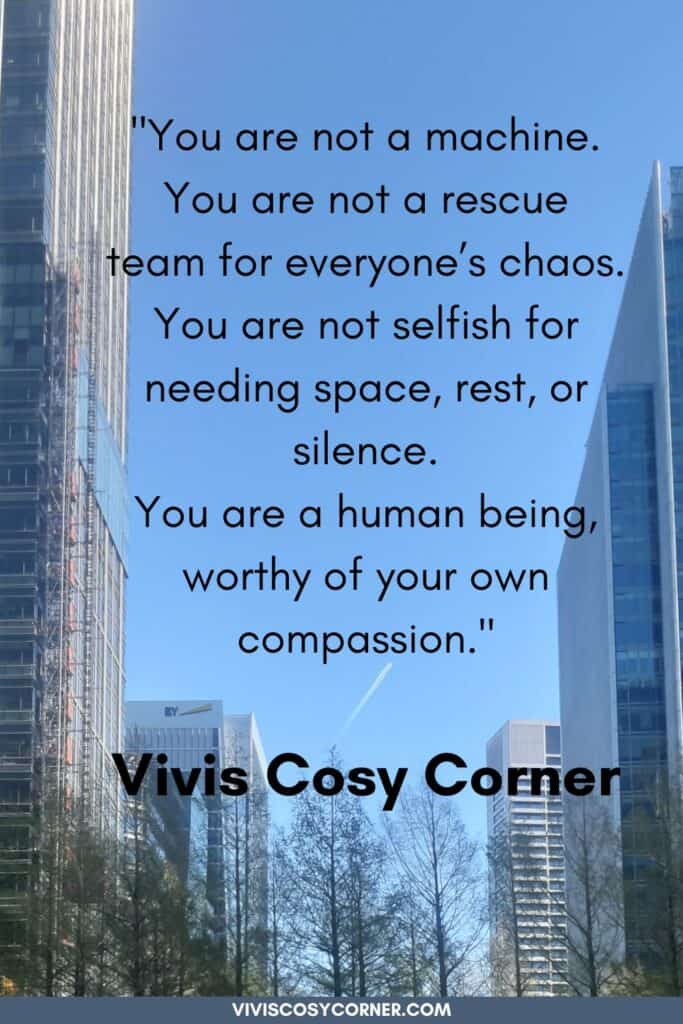
When You Begin Saying “No” Without Guilt…
When you begin saying “no” without guilt, something shifts.
- You reclaim time and space for creativity, for stillness, for joy.
- You protect your energy.
- You stop stretching yourself thin to fit someone else’s schedule.
- You stop performing to earn rest or approval.
- You start living from a place of wholeness, not depletion.
- You show up more fully where it matters.
- Your “yes” becomes powerful. People trust it because they know it’s real.
- You give others permission to set boundaries too.
Suddenly, your “yes” becomes a gift, not a habit. It’s offered from abundance, not obligation. And slowly, those around you adjust.
The people who truly respect you? They won’t leave. They’ll admire your clarity. Your courage. Your commitment to self.
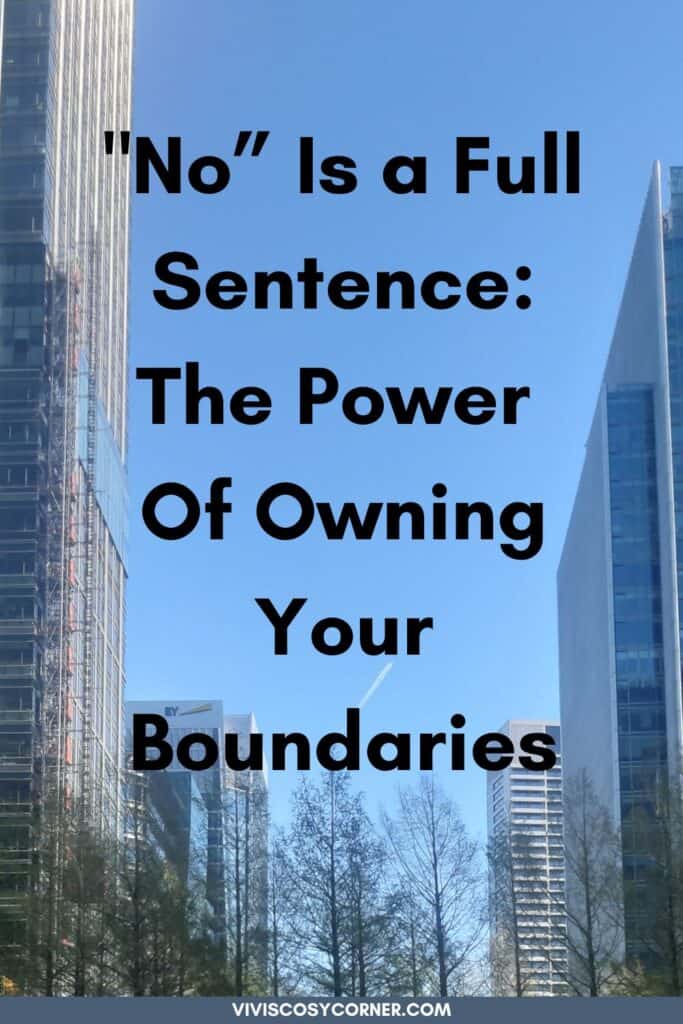
No Is a Full Sentence: Your Permission Slip to Pause
Let this post be your gentle invitation to: Say “no” when you need to. Say it with softness. Or strength. Or silence.
Say it not because you must, but because you can.
Because “no” is not the end of kindness. It’s the beginning of self-respect.
You don’t need to earn rest. You don’t need to prove your value. You just need to remember it.
No is a full sentence. And you are allowed to use it.
Where in your life do you need to draw a boundary? Where do you need to say “no” today? Share in the comments, I’ll cheer you on.
Thank you for being a VCC reader.

